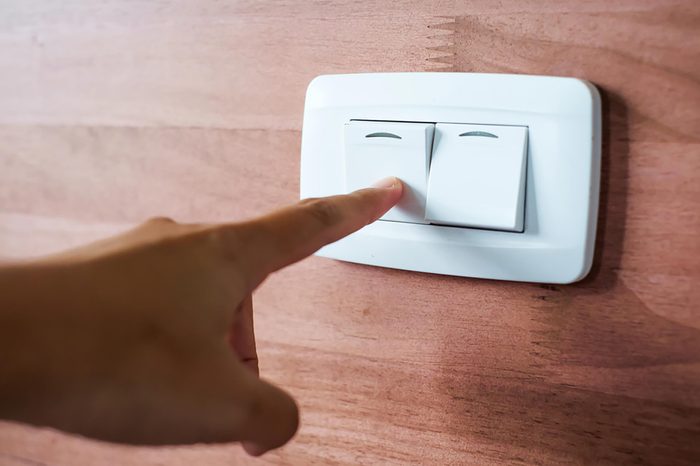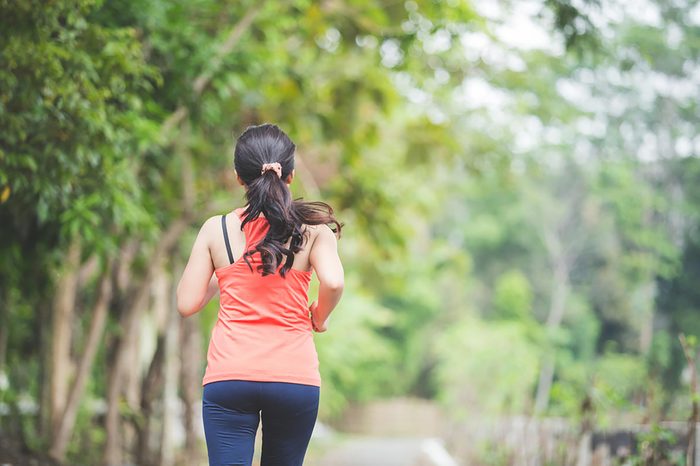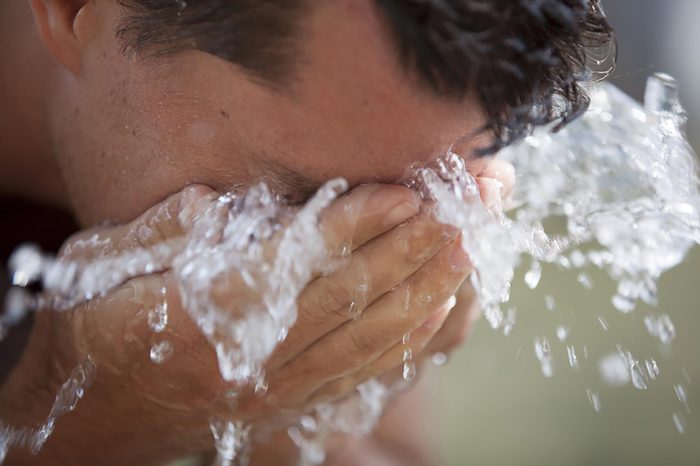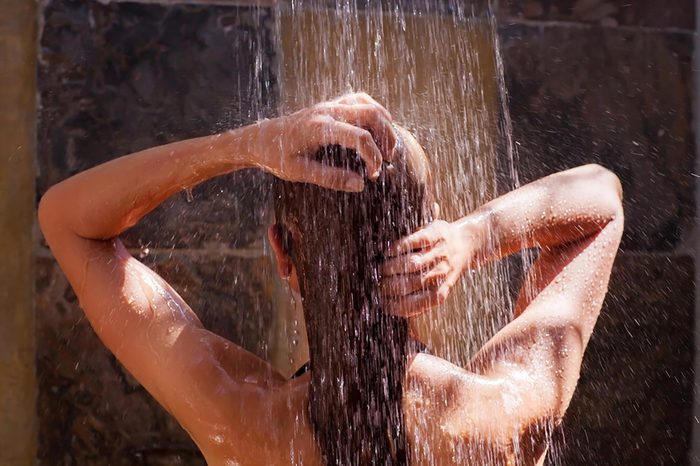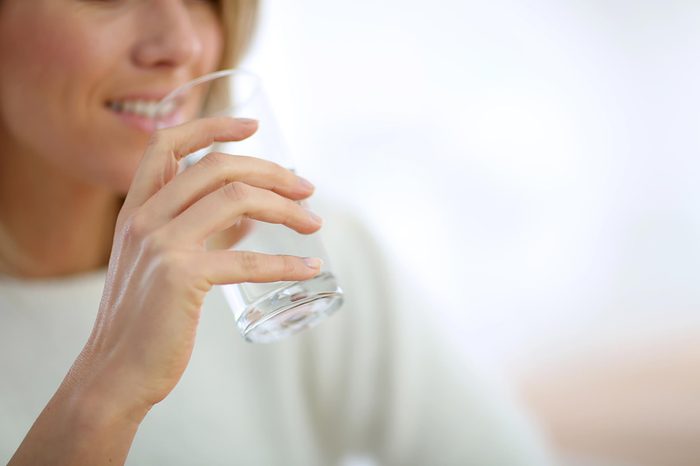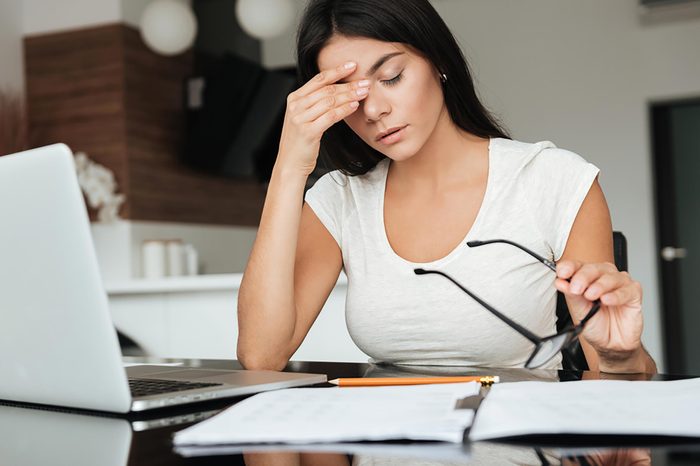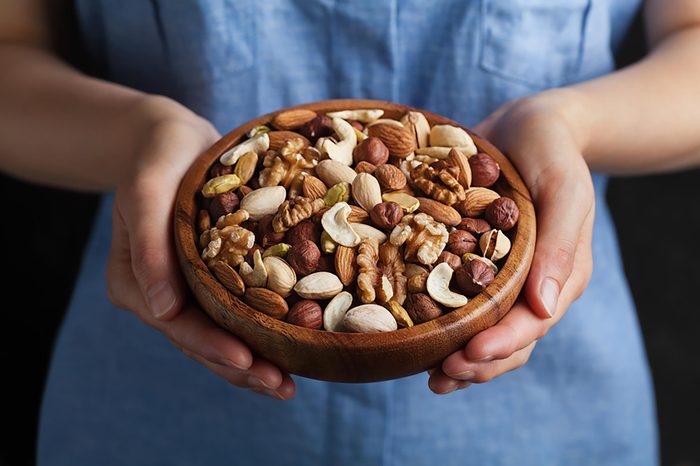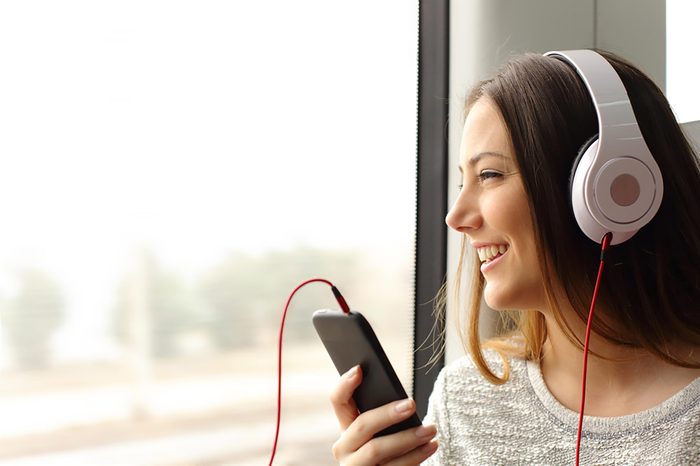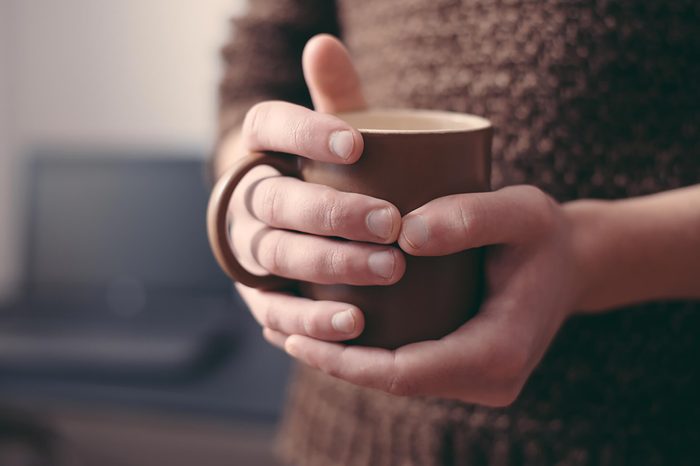Take a cool shower
Even better, expose your whole body to cool water to wake yourself up. “There is some data that a cool, not cold, shower in the a.m. can be very alerting,” Dr. Breus says. The cool water stimulates blood flow and gives you a rush of endorphins. You could also consider a polar bear plunge if you have access to a pool. “There are many stories out these about people doing a ‘cold swim’ in the early a.m.,” Dr. Breus says. “I have tried this personally and while invigorating, jumping into a freezing pool of water is not a ton of fun. However, a cool shower is easy to do, and very effective for me.” If you can’t bring yourself to hop right into a cool shower, Dr. Shane says suggests gradually turning the water temperature colder after it’s already running over you. It’s worth trying, especially when you know the 8 benefits of taking a cool shower.
Do some deep breathing
Although we think of deep breathing as calming, and therefore potentially more likely to put us to sleep, the increased oxygen flow actually helps the brain work better. Research on meditation and other breath-focused practices in Psychophysiology and World Journal of Clinical Cases show that they can strengthen your focus or attention and boost brain health, too. “With this I find that my patients may not be more alert but they are more focused,” Dr. Breus says, which allows you to get through a mental task easier. Dr. Shane says deep breathing can also help you shake off the tired feeling, giving you more energy. Staying awake when you want to go to sleep puts stress on the body, and in stressful situations, our breathing tends to be shallow. “Breathe just a little more deeply and slowly than usual, and your breath will become smoother and more comfortable,” he says. “That calms tension that had been contributing to your tiredness.”
Drink water
Staying fully hydrated can help keep the body working optimally, making us feel more awake when we’re sleep-deprived. Our bodies are 60 percent water, so we need the fluid to function—if we’re dehydrated, the effects of sleep deprivation are even worse. “When we are tired, our bodies often feel ‘dried out,’ so drinking lots of water or good fluids can help you feel less tired,” Dr. Shane says. Even mild dehydration causes fatigue as well as a reduction in brain function, according to a small study published in the Journal of Nutrition. The opposite may be true as well: A study from the UK found that students who brought water into exams did better than those who didn’t (and not just because smarter people come prepared!).





















